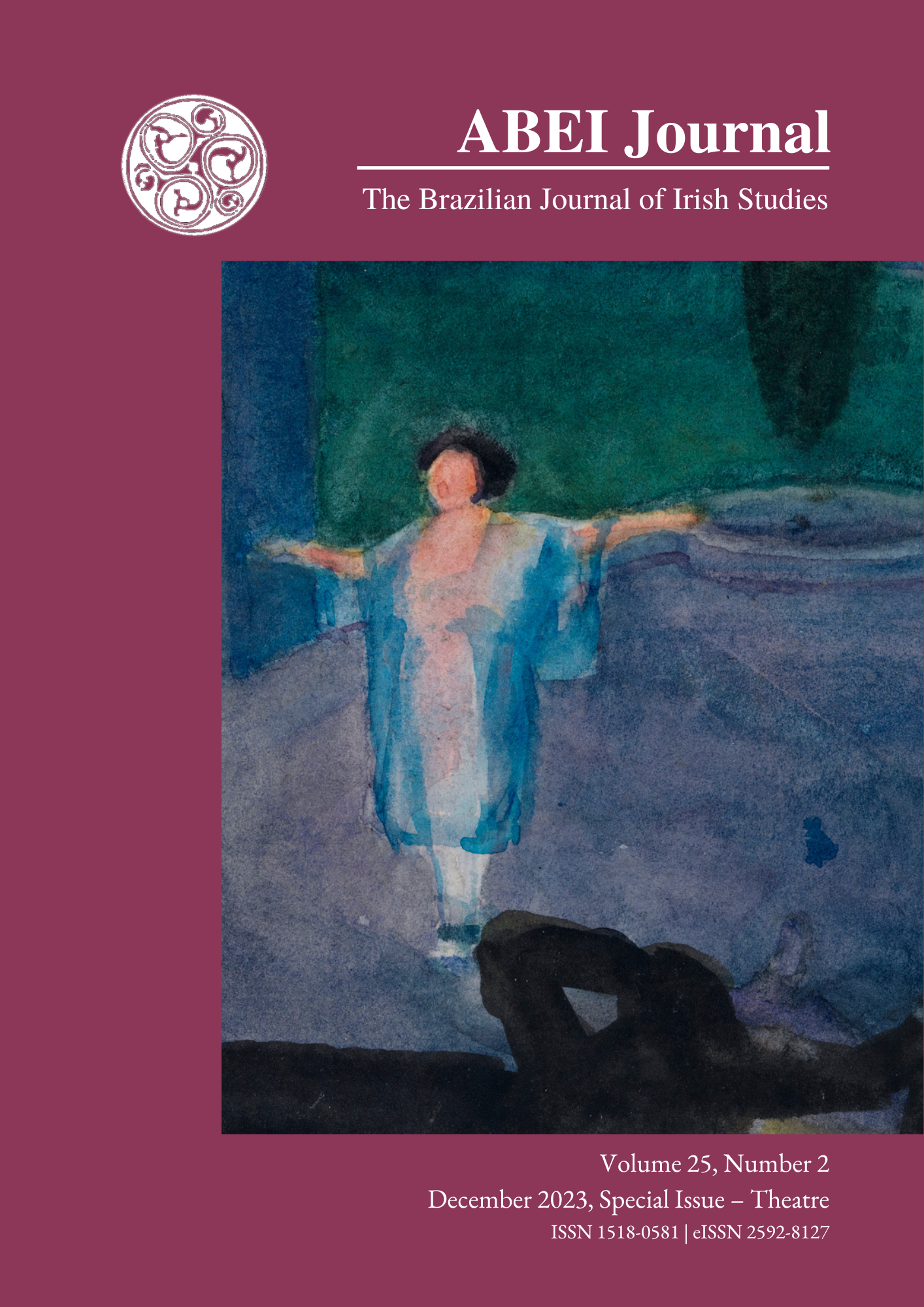“Um jogador, um dramaturgo e o poeta mais famoso do mundo”: Altos e baixos em The Player Queen
DOI:
https://doi.org/10.11606/issn.2595-8127.v25i2p33-45Resumo
Yeats publicou The Player Queen, uma peça com a qual se debateu durante mais de uma década, em 1922, apenas um ano antes de lhe ser atribuído o Prêmio Nobel. Este artigo argumenta que, apesar da sua aparência de completa loucura, The Player Queen constitui um marco significativo na elaboração por Yeats da sua própria estética teatral, bem como uma meditação sobre a responsabilidade artística – ou o seu fracasso. Por que o poeta Septimus não consegue comunicar sua bela visão do Unicórnio a ninguém, e por que ninguém na peça o ouve? Por um lado, os cidadãos da peça são figuras de espectadores incompetentes, que lembram o público que rejeitou Synge na Abadia. Por outro lado, o próprio Septimus é um espectador incompetente, que está tão absorto em sua visão poética que não consegue prestar atenção à importante mudança que está realmente ocorrendo diante de seus olhos, embora isso diga respeito à sua própria esposa Decima, a Rainha Jogadora que vem para substituir a verdadeira rainha. Septimus não consegue se fazer ouvir porque não está prestando atenção ao que realmente importa, não está cumprindo seu dever, como dramaturgo e poeta, de traduzir o caos sem forma da realidade em formas inteligíveis.
Referências
Becker, William. “The Mask Mocked: Or, Farce and the Dialectic of Self: (Notes on Yeats’s The Player Queen).” The Sewanee Review, Vol. 61, No. 1 (Winter, 1953), pp. 82-108.
Beckett, Samuel. The Complete Dramatic Works. Faber and Faber, 1986.
Doody, Noreen. The Influence of Oscar Wilde on W.B. Yeats: “An Echo of Someone Else’s Music”. Palgrave Macmillan, 2018.
Ellmann, Richard. Yeats: The Man and his Masks. Norton, 2000.
Jean, Daniel. “Yeats’s The Player Queen: Taking on (or Laughing off) Modernism.” Études anglaises, Vol. 68, No. 4 (2015), pp. 442-453.
Yeats, W.B. “The Irish Dramatic Dramatic Movement.” Nobel Lecture, 1923. NobelPrize.org. Nobel Prize Outreach AB 2023. https://www.nobelprize.org/prizes/literature/1923/yeats/lecture/ Accessed 28 Nov 2023.
---. The Collected Works of W.B. Yeats, Vol. II: The Plays. Eds. David R. Clarks and Rosalind E. Clark. Scribner, 2001.
---.The Collected Works of W.B. Yeats, Vol. III: Autobiographies. Ed. William H. O’Donnell and Douglas N. Archibald. Scribner, 1999.
---. The Collected Works of W.B. Yeats Vol. V: Later Essays. Ed. William H. O’Donnel. Scribner, 1994.
---. The Collected Letters of W.B. Yeats. Ed. John Kelly. Oxford University Press, 2002. Digital edition, np.
Downloads
Publicado
Edição
Seção
Licença
Copyright (c) 2023 Alexandra Poulain

Este trabalho está licenciado sob uma licença Creative Commons Attribution-NonCommercial 4.0 International License.


